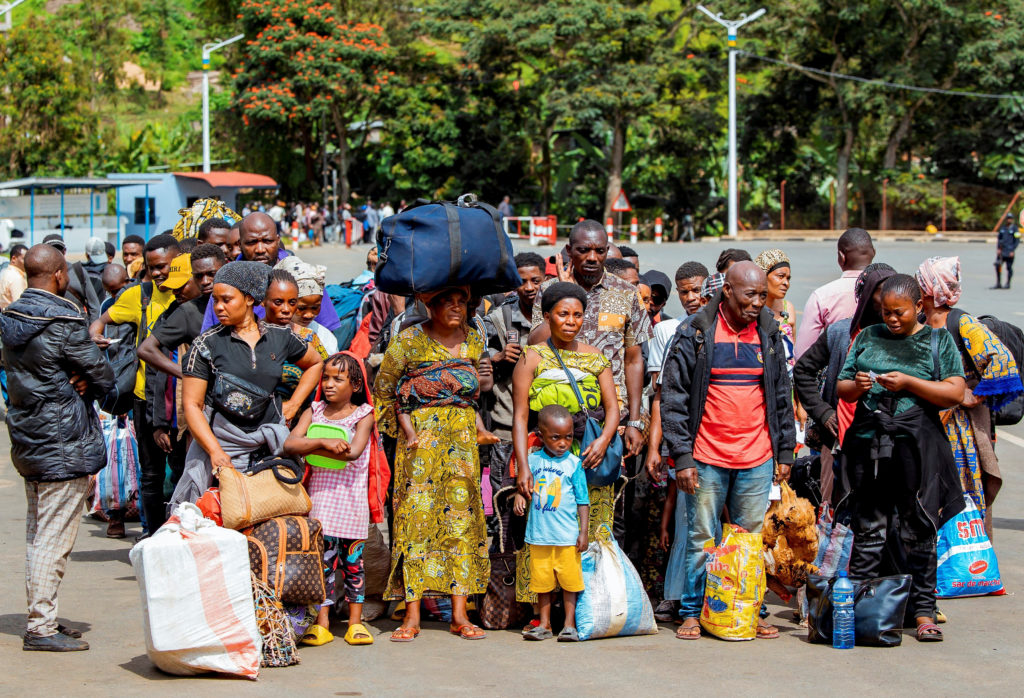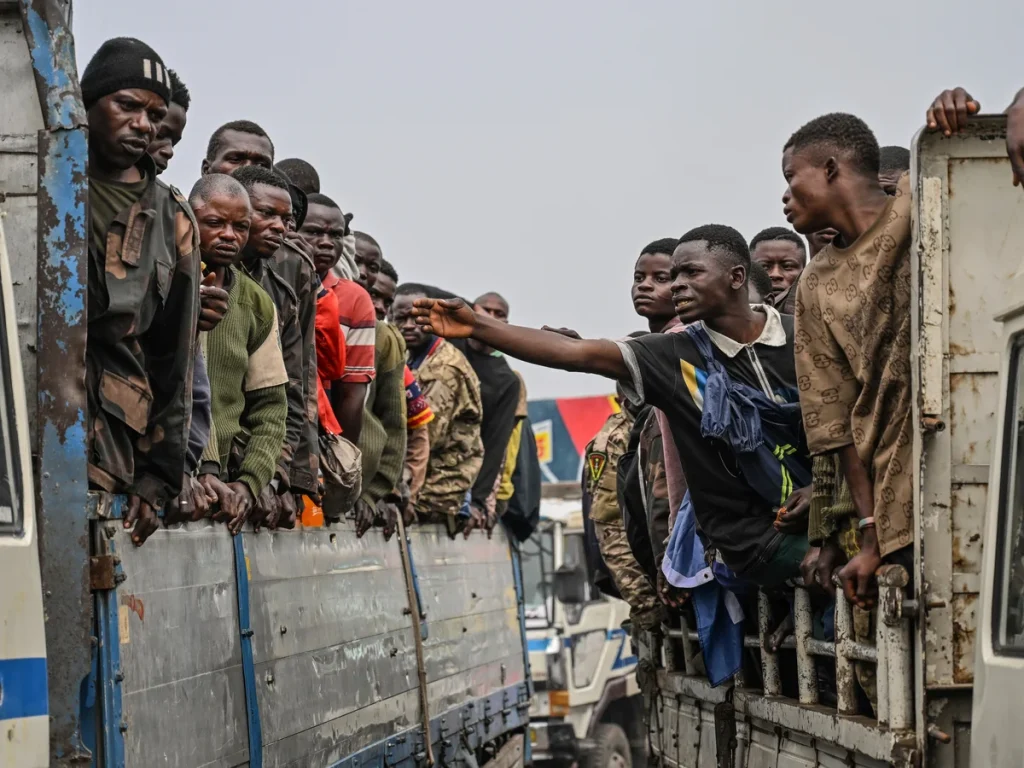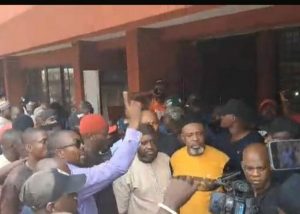UN condemns deadly attacks on civilians by the Rwandan-backed M23 armed group

Congolese civilians who fled from Bukavu, eastern Democratic Republic of Congo following clashes between M23 rebels and the Armed Forces of the Democratic Republic of the Congo (FARDC), carry their belongings as they gather at the Rusizi border crossing point to return home, in Rusizi district, Rwanda, February 17, 2025. REUTERS/Stringer
The UN Human Rights Office has condemned the escalation in deadly attacks on civilians by the Rwandan-backed M23 armed group in eastern DRC amid continued fighting, despite the ceasefire that was recently signed in Doha.
Jeremy Laurence, Spokesperson for the Office of the UN High Commissioner for Human Rights, said the M23 killed at least 319 civilians, backed by members of the Rwanda Defence Force, between 9 and 21 July in four villages in the Rutshuru territory of North Kivu Province.
“Most of the victims, including at least 48 women and 19 children, were local farmers camping in their fields during the planting season. We also condemn attacks against civilians by other armed actors. We have documented multiple such attacks in the North Kivu, South Kivu and Ituri Provinces in July, including by the ADF and CODECO armed groups,” said Jeremy.
He added, “All attacks against civilians must stop immediately, and all those responsible must be held to account. UN High Commissioner for Human Rights Volker Türk renews his call on all parties to the conflicts in eastern DRC to protect civilians from harm, and to uphold all their obligations under international humanitarian law and international human rights law. He also urges all parties to the recently signed declaration of principles to commit to the peace process in good faith, and to act decisively to end the cycles of recurring violence.”
The DRC army has long struggled against the rebel group, and has now been grappling with a complex web of attacks since renewed hostilities with the Rwanda-backed M23 rebels.

The spike in violence comes just weeks after two high-level peace initiatives appeared to offer a path forward.
On 27 June, Rwanda and the DRC signed a bilateral peace agreement in Washington, followed by the so-called Doha Declaration between the DRC Government and M23 rebel leaders on 19 July, which committed both sides to a ceasefire and further negotiations.
However, humanitarian NGOs say little has changed on the ground.
READ ALSO: Brazil Urges WTO Intervention in Fierce Trump Tariffs Dispute 1
“I urge the signatories and facilitators of both the Doha and Washington agreements to ensure that they rapidly translate into safety, security and real progress for civilians,” Mr. Türk said.
Meanwhile, other armed groups continue to terrorise civilians across eastern Congo. In July alone, the UN documented deadly attacks by the Allied Democratic Forces (ADF), Coopérative pour le développement du Congo (CODECO) and Raia Mutomboki/Wazalendo militias in Ituri, South Kivu and North Kivu.
On 27 July, ADF fighters attacked a Christian congregation in Ituri’s Komanda village, killing at least 40 worshippers – including 13 children – and torching homes, shops and vehicles. Earlier in the month the same group killed at least 70 civilians in a single attack on Pikamaibo village.

Women and girls are also enduring systematic sexual violence as a weapon of war. On 27 July, eight women were raped by Raia Mutomboki/Wazalendo fighters in South Kivu’s Busolo village.
The growing insecurity is fuelling what humanitarians describe as one of the world’s most acute humanitarian crises.
UN Release IDP Figures
According to UN figures, over 7.8 million people are now internally displaced (IDPs) in eastern DRC – the highest figure on record – while 28 million people are facing food insecurity, including nearly four million at emergency levels.
Adding to the strain, more than 30,000 refugees from South Sudan have fled into Ituri province since April, escaping a wave of killings and active hostilities across Central Equatoria State.
The World Food Programme (WFP) has warned that funding shortfalls may soon force it to suspend lifesaving assistance to hundreds of thousands.
Health services are also collapsing under pressure. In the first half of 2025, 33 attacks were recorded on health workers and facilities – a 276 per cent increase from the previous six months, according to the UN reproductive health agency, UNFPA.





